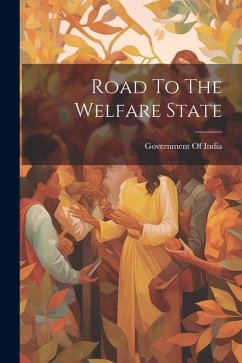
Marginalized Groups, Inequalities and the Post-War Welfare State
Whose Welfare?
Herausgeber: Baár, Monika; Trigt, Paul van
Versandkostenfrei!
Versandfertig in 1-2 Wochen
55,99 €
inkl. MwSt.

PAYBACK Punkte
28 °P sammeln!
Examining the ways in which societies treat their most vulnerable members has long been regarded as revealing of the bedrock beliefs and values that guide the social order. However, academic research about the post-war welfare state is often focused on mainstream arrangements or on one social group. With its focus on different marginalized groups: migrants and people with disabilities, this volume offers novel perspectives on the national and international dimensions of the post-war welfare state in Western Europe and North America.














